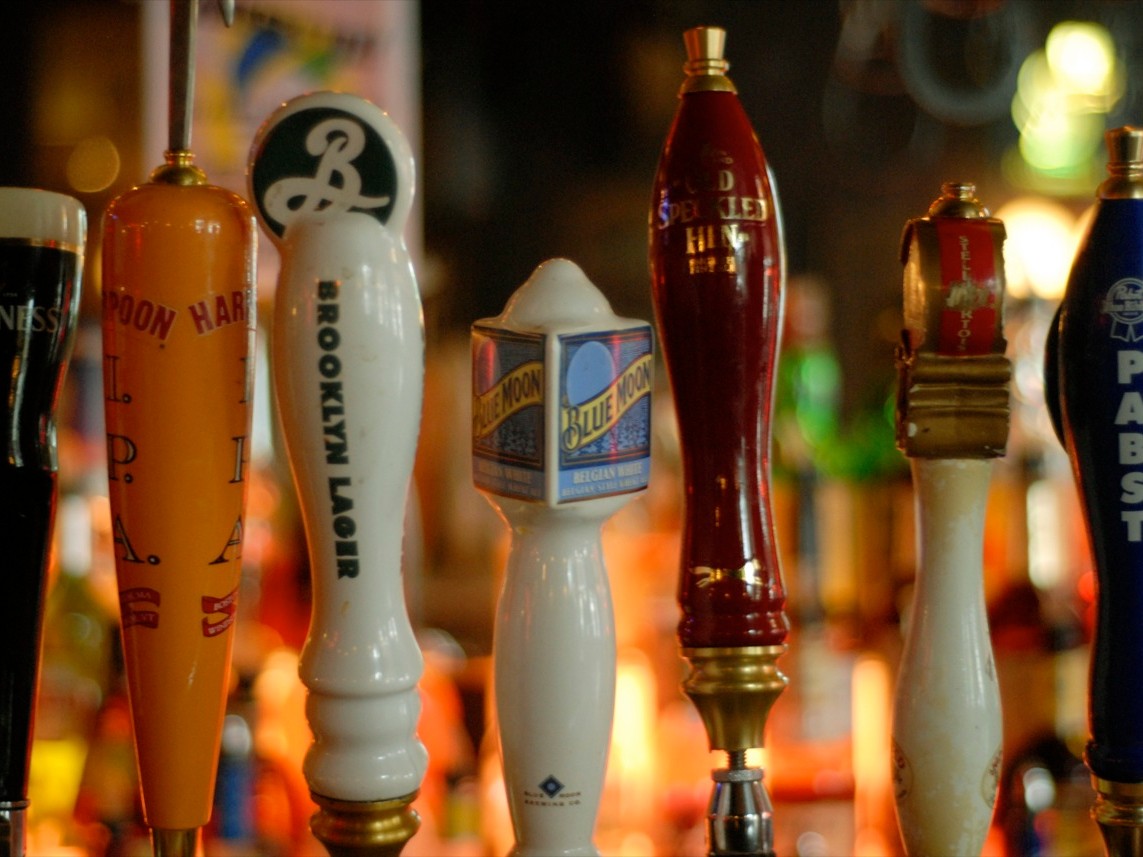Sacramento is moving forward with an initiative aimed at revitalizing nightlife in Downtown and Midtown, and supporting local businesses. On Tuesday, the city council unanimously approved an ordinance establishing three ‘entertainment zones.’ The zones will allow special event attendees to carry and consume alcoholic beverages in public areas like sidewalks and streets.
The entertainment zones are modeled after similar programs in San Francisco and Santa Monica, where officials say the approach has helped increase foot traffic and revenue for local bars and restaurants. Sacramento’s three entertainment zones include 20th and K streets in Midtown’s Lavender Heights district, the area around the SAFE Credit Union Convention Center, and Ali Youssefi Square along K Street between 7th and 8th streets.
“This is not a 24/7 open container law or zone,” said Emily Baime Michaels, executive director of the Midtown Association. “It’s alcohol from pre-approved businesses during the time that there’s a special event going on.”
The ordinance allows to-go drinks to be sold by licensed bars and restaurants during permitted events. People will be able to walk within the designated entertainment zones with their drinks, provided they meet the age requirements and use branded containers.
Each entertainment zone is subject to a series of guidelines, including security plans approved by the Sacramento Police Department, ID verification, and physical signage marking boundaries. Alcohol cannot be brought in from outside the zone, and businesses must still comply with state ABC rules.
Though mostly closely associated with nightlife, the entertainment zones apply to events held between 10 am and midnight. Events with entertainment zones could include late-morning brunch markets, afternoon art walks, and evening concerts.
Bob Simpson is the owner of Downtown bars Malt & Mash and Townie. He says the new zones remove barriers that have long prevented businesses from participating in, and financially benefiting from, special events.
“Often with street festivals, fencing would go up and neighboring businesses couldn’t participate,” he said. “This kind of breaks down those barriers.”
Councilmember Phil Pluckebaum represents the district where the three entertainment zones are located. He said the ordinance is about responsible enjoyment and giving local business owners more flexibility.
“This is not Mardi Gras, not like Bourbon Street,” he said. “It’s associated with specific locations and permits.”
The zones are designed to be used only a handful of times per year. Midtown’s zone is expected to debut during Labor Day weekend’s Rainbow Festival and again for September’s Second Saturday.
“This is a pilot,” Baime Michaels said. “We’re going to keep a close eye on what’s working and what we need to shift in the coming months.”
Sacramento’s entertainment zones are made possible by Senate Bill 969, signed into law in 2024. The bill expanded a previously San Francisco-only pilot program statewide, allowing cities to designate zones where alcohol can be consumed in public under specific circumstances.
Not everyone is a supporter. Non-profit Alcohol Justice is an alcohol industry watchdog that has argued that such entertainment zones could make it easier for underage people to access alcohol and increase community disruptions. The organization did not respond to a request for comment.
At Tuesday’s city council meeting, Visit Sacramento’s president and CEO, Mike Testa, pointed to data from San Francisco to speak in support of the entertainment zones. He said that bars within entertainment zones saw sales increase by 700 to 1,500 percent during events.
Simpson said similar gains in Sacramento could open the door for more collaboration and creativity among small business owners looking to create new community events.
“I might not wanna book a $50,000 DJ,” he said, “but when you bring in seven other businesses to participate in and bring out a large crowd, it certainly does make sense.”
Sacramento’s entertainment zones take effect at the end of July 2025. If they prove successful, other zones could be considered in other parts of the city.
CapRadio provides a trusted source of news because of you. As a nonprofit organization, donations from people like you sustain the journalism that allows us to discover stories that are important to our audience. If you believe in what we do and support our mission, please donate today.
